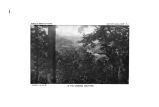| OCR Text |
Show 222 MYTHS OF THE CHEROKEE IKTH. ANN. 19 while waiting in the stockade camp. The inscription, with details, is given from information kindly furnished by Mr D. K. Dunn of Conasauga, Tennessee, in a letter dated August 16,1890: " Sacred to the memory of David and Delilah A. McNair, who departed this life, the former on the 15th of August, 1836, and the latter on the 30th of November, 1838. Their children, being members of the Cherokee Nation and having to go with their people to the West, do leave this monument, not only to show their regard for their parents, but to guard their sacred ashes against the unhallowed intrusiou of the white man." ( 45) PRESIDENT SAMUEL HOUSTON, ( p. 145): This remarkable man was born in Rockbridge county, Virginia, March 2, 1793, and died at Huntsville, Texas, July 25, 1863. Of strangely versatile, but forceful, character, he occupies a unique position in American history, combining in a wonderful degree the rough manhood of the pioneer, the eccentric vanity of the Indian, the stern dignity of the soldier, the genius of the statesman, and withal the high chivalry of a knight of the olden time. His erratic career has been the subject of much cheap romancing, but the simple facts are of sufficient interest in themselves without the aid of fictitious embellishment. To the Cherokee, whom he loved so well, he was known as Ka'lanu, " The Raven," an old war title in the tribe. His father having died when the boy was nine years old, his widowed mother removed with him to Tennessee, opposite the territory of the Cherokee, whose boundary was then the Tennessee river. Here he worked on the farm, attending school at intervals; but, being of adventurous disposition, he left home when sixteen years old, and, crossing over the river, joined the Cherokee, among whom he soon became a great favorite, being adopted into the family of Chief Jolly, from whom the island at the mouth of Hiwassee takes its name. After three years of this life, during which time he wore the Indian dress and learned the Indian language, he returned to civilization and enlisted as a private soldier under Jackson in the Creek war. He soon attracted favorable notice and was promoted to the rank of ensign. By striking bravery at the bloody battle of Horseshoe bend, where he scaled the breastworks with an arrow in his thigh and led his men into the thick of the enemy, he won the last^ ing friendship of Jackson, who made him a lieutenant, although he was then barely twenty- one. He continued in the army after the war, serving for a time as subagent for the Cherokee at Jackson's request, until the summer of 1818, when he resigned on account of some criticism by Calhoun, then Secretary of War. An official investigation, held at his demand, resulted in his exoneration. Removing to Nashville, he began the study of law, and, being shortly afterward admitted to the bar, set up in practice at Lebanon. Within five years he was successively district attorney and adjutant- general and major- general of state troops. In 1823 he was elected to Congress, serving two terms, at the end of which, in 1827, he was elected governor of Tennessee by an overwhelming majority, being then thirty-four years of age. Shortly before this time he had fought and wounded General White in a duel. In January, 1829, he married a young lady residing near Nashville, but two months later, without a word of explanation to any outsider, he left her, resigned his governorship and other official dignities, and left the state forever, to rejoin his old friends, the Cherokee, in the West. For years the reason for this strange conduct was a secret, and Houston himself always refused to talk of it, but it is now understood to have been due to the fact that his wife admitted to him that she loved another and had only been induced to marry him by the over- persuasions of her parents. From Tennessee he went to Indian Territory, whither a large part of the Cherokee had already removed, and once more took up his residence near Chief Jolly, who was now the principal chief of the western Cherokee. The great disappointment which seemed to have blighted his life at its brightest was heavy at his |































































































































































































































































































































































































































